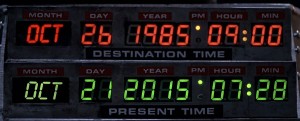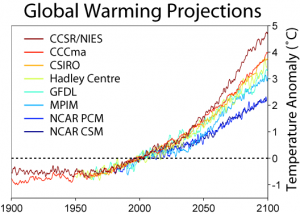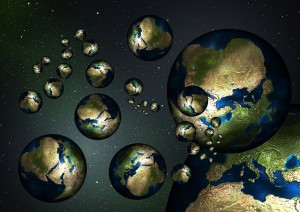In celebration of the “future day”, Oct 21, 2015, from Back to the Future II, many media have listed things about what the movie has predicted right, and they actually found quite a few. This might not be that surprising to you, since they were often based off some advanced technologies at that time. However, all fantasy aside, from a scientific perspective, as technology advances and more data is accumulated from our everyday life, can we actually predict the future?
Predicting the future has been a very attractive scientific topic from all times. We have already been trying to predict weathers by monitoring clouds and winds, stocks by monitoring the market performance and related information, and even politics. Every year, we also use data of influenza cases and circulating viruses around the world to make vaccines predications for the flu season. Just like the movie, we managed to predict correctly for quite a few times, but since it’s not a movie, when the prediction is not correct, sometimes the consequences could be heart-breaking. What can we learn from these?
To predict the future, the first thing we need to know is that not all false predications are tolerated equally. For example, if a forecasted rainy day turns out to be sunny, people probably won’t complain; however, for a hurricane like Patricia, the “strongest landfalling pacific hurricane on record“, missing the prediction of its arrival would be very devastating. Thus, for a better prediction, we often need to consider the costs of false positive/negative results.
Secondly, we learned that we may not be very good at predicting what is going to happen in the next 30 years, but we could get pretty good for the near future. You may have noticed that the weather forecast for tomorrow is much more accurate than the forecast for next week. This is because we have more relevant data for tomorrow’s weather prediction. It might seem intuitive, but having more data is crucial for all kinds of predictions. As Kenneth Cukier would probably say , the more, the merrier, based on his TED talk here.

[by youtube channel TED]
Thirdly, based on what I have learned from my machine learning class (it studies algorithms that “learn” from existing data), averaging predications from multiple qualified good models makes the prediction more trustworthy. Taking global warming for example, despite the fact that different prediction models don’t agree on the level of global warming 85 years from now, they do agree on the trend if we average them all together especially in the near future.
Finally, we should always be cautious about future prediction. Just like in the movie, our predication model is only good if we don’t act on it based on our prediction; once we intervene, the prediction would no longer be valid. As most movies would tell you that you have already entered a parallel universe.
by Sainan Liu



